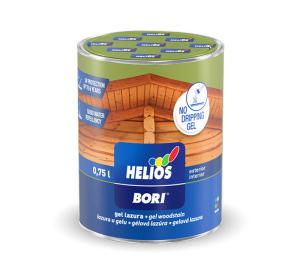Brand new non-Latin Catholic Church buildings sui iuris pick its professionals according to the cultural society
So, to cite a couple of examples, if yourr family is of Irish heritage, and your parents were Catholics, and they had you baptized a Catholic in their parish church, then you are a Latin Catholic. But if you’re Romanian, and your parents are/were members of the Romanian Catholic Church (which broke with the Romanian Orthodox Church generations ago, and returned to union with Rome), then you are a member of the Romanian Catholic Church too, whether you know it or not, and regardless of what country you’re living in or what Catholic Church sui iuris you regularly attend.
It actually gets a lot more challenging and perplexing, particularly if your parents was/had been members of various other Catholic Churches sui iuris-e.g. an effective Ruthenian Catholic lady married to good Latin Catholic people, or a good Chaldean Catholic woman partnered so you’re able to a low-Catholic guy. Be aware that Rome failed to create this system; it’s a bring-more than from the practice of brand new Orthodox Church buildings, lots of whose people became Catholics within the many years gone-by. This new Pope can always changes this system if the guy desires to (see “Are there any Restrictions to the Energy of Pope?” for more on this), but at this point no Pope enjoys made a decision to exercise.
This is the way the latest Orthodox Church buildings work-please remember that most of Churches sui iuris you to returned so you’re able to communion with Rome is Orthodox before
A few of the standard implications in the tricky system might be found in cannon 111.step 1. So it canon states when you happen to be baptized as a child, the registration in the an excellent Catholic Chapel sui iuris is based on the newest Chapel(es) sui iuris of moms and dads. In the event the both dad and mom is Latin Catholics, then you are also-regardless of which baptized you! Simply because you will be baptized during the, state, a Greek Melkite Catholic Church, that doesn’t automatically give you good Greek Melkite Catholic. An effective Greek Melkite Catholic priest normally however carry out a valid Catholic baptism-if your parents was basically Latin Catholics, you are as well.
And regular attendance at the parish of a different Catholic Church sui iuris doesn’t change anything. Canon 112.2 states clearly that the practice, however longstanding, of receiving the sacraments in a different Catholic Church sui iuris does not bring with it membership in that Church. So if your parents are Ukrainian Catholics, but you were born and raised in the middle of Sri Lanka, with no Ukrainian Catholic parish or clergy in sight, you might of necessity have attended a Latin Catholic parish your entire life-but you’re still a Ukrainian Catholic.
What does which registration indicate in practice? Better, it means that once we Catholics is also sit in Size and discover the newest sacraments out-of Penance plus the Eucharist at any Catholic Church on the planet, each of us are however theoretically still under the spiritual proper care and you will legislation of clergy of your Church sui iuris. This has big ramifications with respect to wedding.
” among others), Catholics who marry are required to follow canonical form. For their marriage to be valid, Catholics must marry in the presence of either the local bishop, or the pastor of the parish, or a priest/deacon deputed by either of them (c. 1108.1). And when it comes to the different Churches sui iuris, it is critical first to identify exactly who are the clergy entrusted with your spiritual care.
Since we viewed repeatedly in advance of (for the “Why must a wedding in our College or university Church become Invalid?
Canon 1109 explains how this is supposed to play out, so far as the Latin clergy are concerned. It tells us exactly whom the bishop and the pastor of the parish can validly marry: a.) Their subjects (i.e., a diocesan bishop can marry the Catholics of his diocese, and a parish pastor can marry the Catholics of his parish); and b.) Their non-subjects (i.e., a diocesan bishop can marry Catholics from another https://brightwomen.net/es/mujeres-cipriotas/ diocese, and a pastor can marry Catholics from another parish), given that at least one of the spouses is a Latin Catholic.


